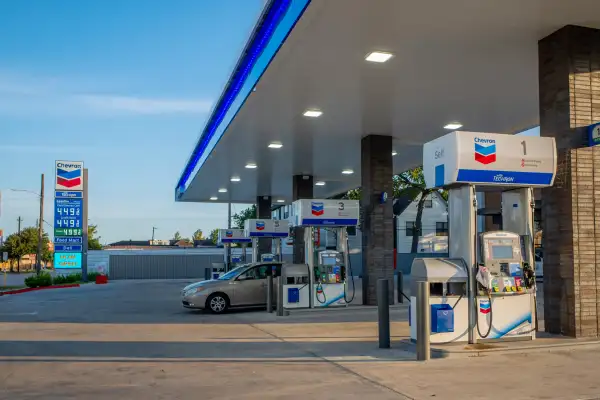Why Gas Prices Could Soon Plunge

Planning a summer road trip? Soon, it might get a little cheaper. Drivers are finally experiencing some relief at the pump thanks to falling gas prices, and even more price cuts could be on the way.
On average, a gallon of regular gas now costs $4.78, according to auto club AAA. That’s down from $4.87 a week ago. Roughly 80% of gas stations in the United States are selling regular gas for less than $5 per gallon.
Gasoline prices are declining now because they're closely tied to the price of crude oil. Cheaper crude oil usually translates into cheaper gas, though these price changes often take several weeks to trickle down to stations.
The price of U.S. West Texas Intermediate crude oil, which many investors use as a benchmark, has been steadily falling for a while. It dipped below the $100-per-barrel threshold for the first time since May this week. (Prices spiked about $120 per barrel in March as a result of the Russian invasion of Ukraine and reduced capacity at U.S. oil refineries.)
Supply and demand is also at play, as AAA noted in a blog post last week. Demand from drivers has fallen as costs have soared — and, at the same time, the nation’s supply of gasoline has grown.
All of that's resulting in lower prices.
Some state and local governments have stepped in, too, suspending their gas taxes to ease the pain for drivers. At the national level, President Joe Biden has advocated for a federal gas tax holiday, though the savings would be minor for most drivers.
Will gas keep getting cheaper?
Some analysts are predicting that oil prices could continue to plummet, which would mean pump prices would decline, as well. Patrick De Haan, head of petroleum analysis at GasBuddy, predicted Tuesday that drivers could expect to see prices drop between 40 and 65 cents per gallon over the coming weeks if the losses in the oil market continue.
What those losses will look like is unclear, though analysts from Citi have suggested that the price of crude oil could fall to $65 by the end of the year. That's a pretty huge decrease from the peak in March — and a scenario that's becoming increasingly likely "as the potential for a recession is growing," Ed Morse, Citi’s managing director and global head of commodity research, told CNBC Tuesday.
But experts are not in agreement about whether a recession is inevitable, so there’s no guarantee that gas prices will keep going down. De Haan said in a blog post that the trend "could fade soon if oil prices reverse.” At a recent news conference, Biden wasn't optimistic, either, warning that the U.S. may have to contend with high prices for as "long as it takes" to prevent Russia from defeating Ukraine.
That's on top of the fact that Americans are now gearing up for summer vacations... which could also push prices back up.
“July is typically the heaviest month for demand as more Americans hit the road," AAA spokesperson Andrew Gross said in his own post, adding: "So this trend of easing prices could be short-lived."
